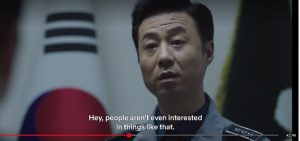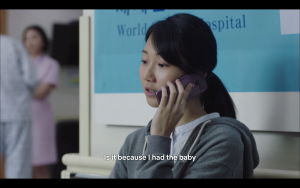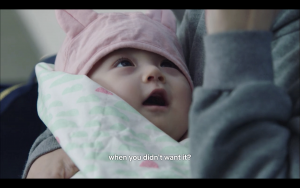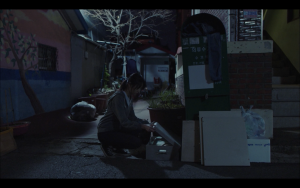Synopsis:
In the last episode of Live, the media has portrayed the actions of the police, specifically Sang Su, as an act of violence and danger to the public. While the media has intentionally opted out significant details of the incidence and the upper ranks prioritizing public relations, justice was bestowed and Sang Su’s actions were declared as rational and fulfilling the duties of the police. As the story was approaching its ending, things turned out well for everyone and Oh Yang Chon returned to the police force being fully recovered.
Discussion:
The issue of being framed through the media exists in every part of the world. While these act of framing may be through the utilization of fake news, it can also happen, just like in Live, by leaving out essential information about the situation. It was said through one of the actors in the drama that “people aren’t even interested in things like that,” (ep. 18, 37:50) and that what only concerns the public and media coverage is the end result. News broadcasting agencies were primarily established todeliver and inform the public about issues but as capitalism became more dominant, the main priority of news agencies became viewership, even if it came to using phrases or words to frame people to be murderers when they are actually heroes.

As citizens and people tend to believe what they see and hear in the news to be fully true, the rate at which these information travel in Korea is extremely fast and during the travelling period, what was spoken as a “could be” turns into a fact with a negative connotation. Canada is about a 100 times larger than the size of Korea but ironically, Korea has approximately 16 million more people. We can imagine how fast information can travel in such a densely populated area.
One example which demonstrates this is the case of Youtuber Yang Ye Won and the owner of the photo studio that caused numerous uprisings and debates. To summarize the incident, the Youtuber filed a suit against the photo studio owner that she was sexually abused and forced to take nude photo shoots. However, messages exchanged between the two showed otherwise. While this story was one of the hottest topics during the summer of 2018, news travelled extremely fast and the media took part on what was only interesting and information that could bring more viewership to their channels. Being framed as a perverted freak, the owner of the photo studio committed suicide with a will that reportedly vented his frustration about the investigation in his letter. He claimed that it will not be fair to him and that the police and the media only want to listen to the victim (Rapir, 2018). It is too early to conclude whether who’s the real victim as the trial is still ongoing ,but Yang’s statement about the incident did not match the evidences so far.
According to a study by professor Wedding from University of Missouri-Columbia, one of the main reasons for people who consider suicide is due to being victims of bullying (Wedding, 2008). From the previous example, it is still not concluded that the owner actually did what he is being accused of; yet, people around him and the whole country hated him the day after the incident went viral, from a single statement, not a fact. The hatred that not only the owner had to endure, but also his friends and family that were also being bullied by the country.
579
Discussion Questions:
- Do you think framing comes from a biased viewpoint or are done intentionally to draw public attention?
- How can we educate the public that not everything they see in the media/news are true?
Bibliography:
Wedding, D. (n.d.). Commonalities Between Suicide in Korea, Japan and the United States. Retrieved from https://dmh.mo.gov/docs/mentalillness/wedding.pdf.
Rapir, J. (2018, July 10). Yang Ye Won Sexual Harassment Case Update: Studio Director Involved In Case Commits Suicide, Leaves Will. Retrieved from http://en.koreaportal.com/articles/45952/20180710/yang-ye-won-sexual-harassment-case-update-studio-director-involved-in-case-commits-suicide-leaves-will.htm





